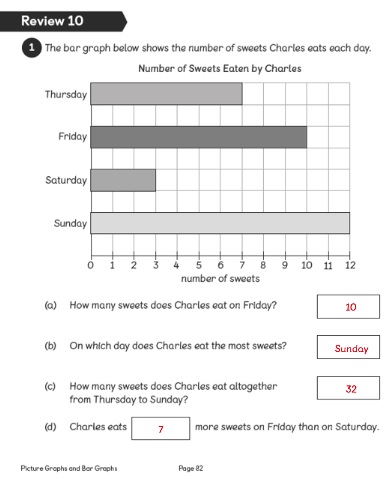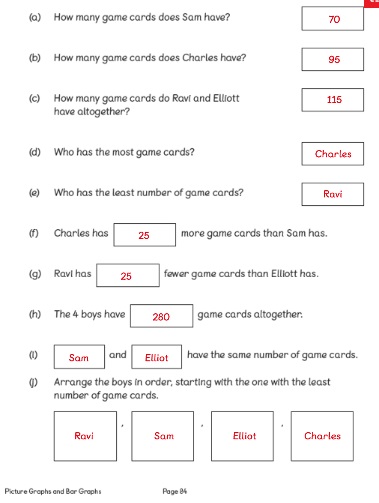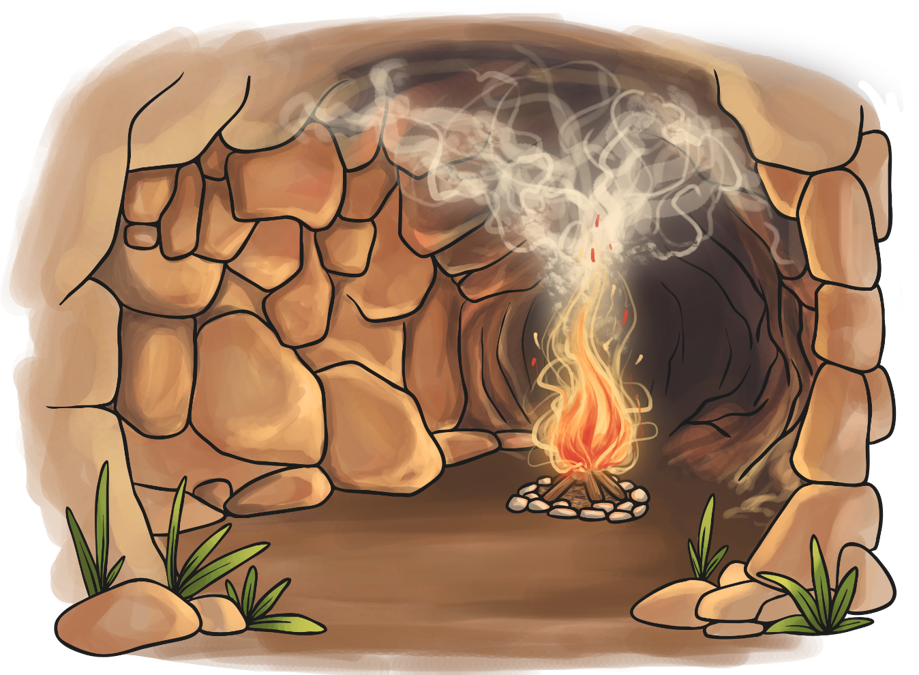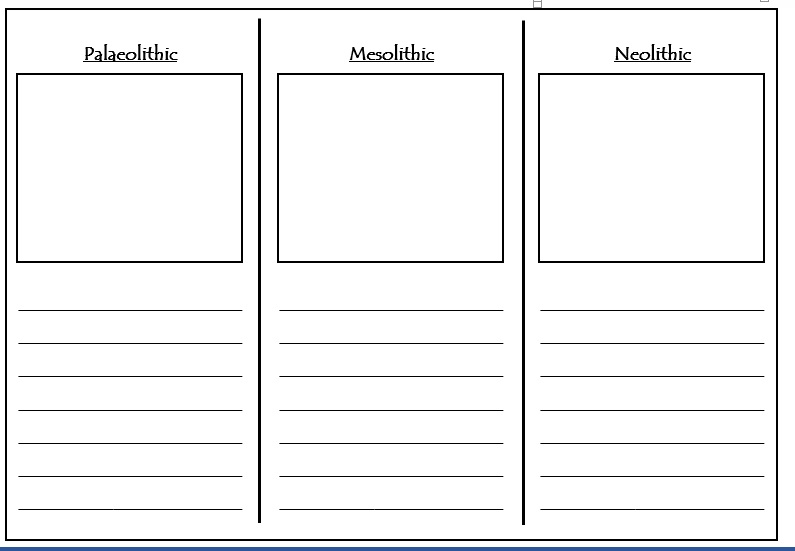Wednesday 6th May – Home Learning
Only two more days to go this week (as it is bank holiday weekend). Where does the time go?
With regards to the learning today, do as much as you can and, remember, if there’s a piece of your child’s learning you would like to share, please feel free to send me a picture or video at t.prior@southill.dorset.sch.uk. I will be making a ‘home learning’ blog post at the end of the week so the more the merrier. You have until 12:00pm on Thursday 7th May in order to get your photographs/videos in! It would be great if we could see as many Year Three faces as possible!
Final reminder- Remember, it is essential to ‘check-in’ during the week so please email me to let me know that you are ok. See it as us simply taking the register.
Apart from that, have an amazing day.
Mr. Prior ?
Spellings
Here are you spellings that you need to learn by the end of the week. Warning- No work is being set on Friday as it is bank holiday, therefore you may either test these on Thursday or wait until Monday. It’s entirely your choice! 🙂
business
calendar
caught
centre
century
Challenge- find out what the spellings mean using a dictionary and try to use the words in your own brilliant sentence.
Reading
Please ensure your children reads daily for at least fifteen minutes. A combination of them reading independently, out loud to an adult and letting them listen to the story being told by the adult is advisable. Simply record any reading in your child’s reading record book. Remember to also quiz your books.
IMPORTANT REMINDER- we are still monitoring book quizzes on Star Reader so please ensure your child is still doing them. Children are more likely to do well on quizzes if they are able to quiz the book straight after reading it. Parents- you are also more than welcome to read the question out loud for your child if it helps them.
Challenge- As you have already written a film review, why not have a go at a book review as well? Think about how you are going to introduce your review and how you are going to structure it using subtitles.
Writing Task- Stig of the Dump
In case you haven’t got round to reading the first chapter yet (or you would like a reminder on what happens) feel free to listen to me reading the story below.
Imagine, like Barney, you discovered a chalk pit, tumbled down into its depths and came face to face with Stig! Decide what might happen next and write the next part of the story.
Remember, description is very important in story writing. Think about how you are going to describe Barney’s thoughts and feelings, how you will describe the dump and, most importantly, how to describe Stig!
Think of all of writing tools you could use to really improve your writing…
Impressive vocabulary
Fronted adverbials
A range of punctuation ( ) ! ” ” … ,
Similes- The man was as hairy as a mountain gorilla and looked as strong as an ox!’
Personification – ‘The cave walls watched in terror as the unusual creature drew closer…’
Paragraphs- how are you going to structure the story?
I have written an example in order to help give you some ideas. You will have the rest of the week in order to produce this so, please, take your time and plan carefully.
Mr. Prior’s example- Stig of the Dump Story
To also help you, here are some clips from the BBC television series…
Best of luck! 🙂
Arithmetic Task- TT Rockstars
People who keep practising their times tables ROCK! Simply log on and learn. 🙂
Remember, we are in a local competition with other schools so the more questions you answer correctly, the higher up the table we go! KEEP ON SMASHING THOSE X TABLES, YEAR 3! 🙂
Maths No Problem Task- Making Angles
First of all, here are the answers to the ‘chapter consolidation’ (pages 82-84).
Brace yourselves as we begin to look at our new chapter…Angles! You will notice that we are skipping the fractions chapter. Ideally, I would like to teach fractions when we return to school as this can be very complex and children can easily get confused and frustrated. If this may not be the case however, we will fit some simple fractions work in before we finish Year 3.
Before even looking at the textbook, take a look at this video. Warning- this song may be stuck in your head for a very long time…
After watching the video, clarify some of the key points.
-Angles are where two straight lines meet at a point (vertex if you want to be fancy).
-Angles are measured in degrees using a small circle (90°)
-A small angle (below 90°) is called acute – Awww its so cute!!!
-An angle between 90° and 180° is called obtuse – as the video says ‘this angles kinda fat it’s got a big caboose!’
-An angle that is exactly 90° is called a right angle- Show children what this is and see if they can spot any right angles around the room (pictures, mirrors, televisions etc.).
In Focus task (page 196)- Begin by looking at the question. Thinking about angles, what can they say about the hour and minute hand on the clocks? Have a discussion. You may want to encourage them to think about these:
-They all make angles
-London is a right angle (90°)
-New York is an acute angle because it is less than 90°
-Frankfurt is an obtuse angle because it is bigger than a right angle.
See how many facts you can find and discuss together. Make sure children are secure with the idea that angles are where two straight lines meet at a point!
Let’s Learn (page 196)- Take a look at the explanation underneath. Notice how an angle is represented. A small curved line is drawn to connect the two straight lines in order to represent the angle.
Guided Practice (page 197-198)- Feel free to watch the video again. Using two pencils, can children make…
An acute angle- get them to explain what makes it an acute angle
A right angle- get them to explain what makes it a right angle
An obtuse angle- get them to explain what makes it an obtuse angle
For the second question, they should be able to tell you why B and C do not form angles (because they do not meet at a point). Keep working through the questions until children are confident with angles.
Workbook (pages 135-138)- Children to have a go at completing the questions. Remind them to read the question carefully. Does it ask them to tick, circle, cross out etc.
Top tip- For the last question in the workbook ‘Think of another letter that does not form angles, go through the alphabet and think of curved letters
I will post the answers to these problems tomorrow.
Topic-based task – Making a house a home!
Historians believe that the Stone Age actually lasted for over 3 million years! During that time, a lot of things developed and changed. Houses in particular really developed over this period. Early on in the Stone Age, which we call the Palaeolithic period, humankind lived in caves and only ventured out to hunt and gather supplies.
This week, we are going to focus on the homes of those who lived during the Stone Age. Using the internet, I would like you to find out how houses developed during the three periods of the Stone Age. We call these three periods: Palaeolithic, Mesolithic and Neolithic.
Now, we know during the Palaeolithic period, humankind used to live in caves, but how did humans adapt and develop over time? To present your findings, either use the template provided below or dedicate a page to each period in your exercise book. Simply write the title, then sketch a picture of what houses looked like during that time. Finally, find some information about the home. Again,
Twinkl have a great PowerPoint presentation which takes children through the history of homes during the Stone Age- https://www.twinkl.co.uk/resource/t2-h-4102-stone-age-homes-lesson-teaching-pack
Twinkl is currently free for everybody so, if you haven’t already got one, simply create a login and download the information.
Remember, present your work neatly. Beautiful sketches, neatest handwriting and punctuation the right places. You have until Thursday to complete this so take your time!
Other Fun Ideas and Activities
Keen to do more? Not ready to call it a day? Then why not give some of the activities below a go (who knows, you might enjoy it)…
Science Experiments- Rummage around in the cupboards and you may like to have a go at some of these wicked science experiments! Make a massive marshmallow, create a bouncing egg, make pepper swim (link to the importance of washing hands) create a tornado in a glass, create dragon eggs, make your own slime, make a hovercraft balloon or even a skittles rainbow.
Get the children making predictions as to what may happen, draw labelled diagrams and then carry out the experiment. What did you learn from the experiment? Write a little conclusion to show what you have found out.
Want to know how to do these experiments? Visit some of the websites listed below…
https://www.dayoutwiththekids.co.uk/blog/easy-cool-science-experiments-for-kids
https://sciencekids.co.nz/experiments.html
https://mashable.com/article/science-experiments-for-kids/?europe=true
JOKE BOOK- Did you enjoy video last week? If you haven’t seen Jester Prior delivering his all-time favourite jokes yet, then visit the Year 3 news page. Why not create your very own joke book? You could create a title page and note down some of the funniest jokes you can think of. I’m sure your parents could do with a laugh! ?
Audible- a great app which you can download and contains many free books (great to listen to before bedtime).
Prior’s Top Audible Picks – Kid Normal by Radio DJ Greg James and Chris Smith.
-Diary of a Wimpy Kid – Wrecking Ball by Jeff Kinney
-Harry Potter and the Chamber of Secrets by JK Rowling
-The Gift of Dark Hollow (the sequel to Podkin One-Ear) by Kieran Larwood
– Slime by David Walliams
Alternatively, if you’re a real keen Walliams fan, he is currently releasing a lot of chapters of his books for free! This includes an audio story from The World’s Worst Children every day for the next 30 days! Check out this link- https://www.worldofdavidwalliams.com/elevenses-catch-up/
Sumdog- Online maths and literacy questions delivered through entertaining games. Simply create a login totally free of charge, create an avatar and let your children explore and play. Mr Prior’s favourite game…JUNK PILE! It’s addictive- be warned. Parents- you can also set certain questions on there for your children to focus on. Any questions, please email me.
Maths Factor- KEEN FOR EVEN MORE MATHS? Carol Vordeman has made her website free during this strange time…feel free to login and check out some of the activities- https://www.themathsfactor.com/
ICT- Fancy becoming quicker at typing and brushing up on your fine motor skills? Why not have a go at BBC Dance Mat Typing…Dancing for your fingertips…you know the drill…follow the link- https://www.bbc.co.uk/bitesize/topics/zf2f9j6/articles/z3c6tfr
French- Bonjour! Can you find out the names of different animals in French?
Lego Construction- Can you create Stone Henge or even a cave out of Lego?
Lexia- If you have a Lexia account, please feel free to login and try to do it for at least 15 minutes.
The Daily Mile- If you have a garden big enough (or a quiet field nearby) why not head out for the Daily Mile? 15 minutes…how many laps can you do?
PE- I like to boogie…everybody does!








